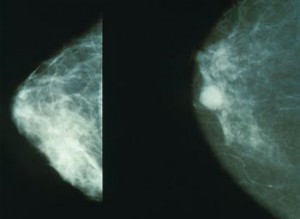SCOTTISH doctors are less likely to refer older women with suspected breast cancer for further tests than younger patients, despite the fact that women over 70 make up a third of newly-diagnosed cases.
A study analysing almost 3,500 urgent referrals for suspected breast cancer found that just 13 per cent of referrals were in women over 70, compared with 23 per cent of women under 40.
Researchers claim that the discrepancy in referral rates is hampering efforts to diagnose the disease earlier and improve survival rates in Scotland, which lag behind other European countries.
Women under 40 account for just 4 per cent of all diagnosed cases.
Researchers agreed it was right for younger women to be sent for further tests.
But they added that doctors needed to lower their thresholds for referring older patients more quickly amid efforts to diagnose breast cancer earlier and get patients the treatment they need.
A conference in Edinburgh this week, organised by charity Breakthrough Breast Cancer, will hear that Scotland still suffers a breast cancer “survival deficit” compared to other countries in Europe, with urgent action needed to improve early detection of the disease.
Previous research has raised questions about the treatment of older women with breast cancer, with suggestions they receive less aggressive treatment than younger patients.
For the latest study, Paul Baughan, chairman of the Scottish Primary Care Cancer Group, and colleagues, looked at 3,486 referrals for suspected breast cancer in Scotland.
The findings, due to be published in the British Journal of General Practice, showed that younger women were more highly represented in the referrals – despite being less likely to be diagnosed with breast cancer.
Baughan, a GP in Dollar, Clackmannanshire, said there was often more pressure on doctors to refer younger patients with breast cancer symptoms because of higher levels of awareness and anxiety in this group, often driven by publicity about younger people with the disease.
He said younger women may be more likely to go to their GP with concerns about possible cancer early on, meaning they were over-represented in the referral patterns.
“It may be that younger women are more aware of changes in their breasts and they are seeking consultations with their GP more frequently than older patients,” Baughan said.
“So we are not saying it is a bad thing that these younger people are referred, but what we need to raise awareness of is that the risk of breast cancer increases with age and GPs maybe need to be more suspicious of breast cancer particularly in people over the age of 50 and the elderly.”
Hazel Tait, 69, was diagnosed with breast cancer two years ago. A week after finding a small lump in her breast she went to her GP, who referred her to the Western General in Edinburgh for further checks.
The tumour was removed and she had reconstructive surgery followed by radiotherapy. She is now on medication for five years, but has a year before her next check.
Tait, from Penicuik, said it was vital that older women were aware of the risks of breast cancer and to check out any concerns they have quickly to improve their chances of survival.
“People tend to forget that we are all getting older and living longer and we should be given that time,” she said.


